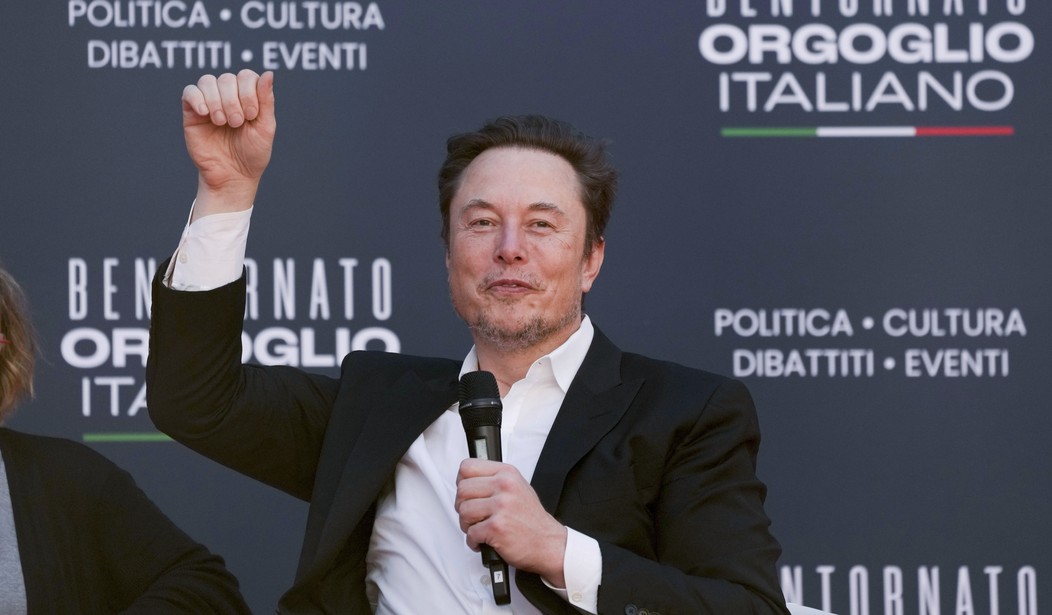While it seems hard to believe, the International Space Station (ISS) was put into orbit more than 25 years ago. Crews of astronauts from multiple nations have been living up there since 2000. For all that time, the ISS has been zipping along in Earth's orbit at roughly 17,500 miles per hour. But all of that will be coming to an end in the near future. The mission of the ISS has been extended a couple of times already, but it is scheduled to shut down in 2030. So what do we do with it then? Someone will have to deal with it and NASA has just awarded an almost one billion dollar contract to Elon Musk's SpaceX corporation to get the job done. However, it's worth asking if "deorbiting" the ISS is really the smartest thing to do. (Associated Press)
NASA has awarded SpaceX an $843 million contract to build the vehicle that will bring the International Space Station out of its longtime orbit of Earth when its operating lifespan ends in a few more years.
SpaceX, a privately held company controlled by technology mogul Elon Musk, will build the vehicle that will bring down the space station, but NASA will still oversee the eventual mission.
The International Space Station, launched in 1998, is expected to be needed to be brought out of orbit by 2030. The station is operated by space agencies from the U.S., Europe, Japan, Canada and Russia.
There is no question that something will need to be done with the ISS when its mission is over. Once the fuel for its thrusters runs out, its orbit will slowly begin to decay and at some point, it will reenter the atmosphere and come down. The ISS weighs 462 tons. It is too massive to fully burn up upon reentry, so at least some of it will reach the surface as a massive fireball traveling at supersonic speed. If it were to strike land in a populated area it could be catastrophic.
Under the current plan, that's where Elon Musk comes in. SpaceX will need to design, construct, and launch a new type of spacecraft that will dock with the ISS and guide it back into the atmosphere in a controlled fashion. Even that approach isn't entirely without risk, of course. You don't have to be off by much to wind up with the space station crashing down into a shipping lane. Even if everything goes flawlessly, we're still going to wind up with yet another massive hunk of junk littering the ocean floor and we'll pay more than $800 million for the privilege of doing so.
Shouldn't there be a better plan available? I'm not some sort of interstellar engineering expert, but it seems like we could shove the ISS out of orbit and plot a course that would eventually send it into the sun. Our star swallows things much larger than the ISS on a regular basis so it wouldn't even blink. Would it really be that difficult? We send resupply missions to the ISS all the time. Couldn't some smart people figure out a way to start including a bunch of thruster rockets up there and assign the astronauts to begin installing them during their spacewalks? Then, when the final astronauts have departed, NASA could start firing up the thrusters and pushing the ISS out of orbit and send it on its final journey.
While we're on the subject, we have built up a daunting cloud of space junk in our orbit. Astronomers regularly complain that all of the dead satellites and other hardware floating around up there is cluttering the view through our telescopes. It is estimated that there are already more than 3,000 dead satellites up there along with more than 34,000 other pieces of space junk greater than ten centimeters in size. Shouldn't we be putting thrusters on all of the satellites so they can be ejected from orbit once they expire? If we're really ambitious, we could start attaching rockets to all of the dead ones that are already up there and start cleaning them out as well.
I'll admit that I don't even know if all of that would be possible, but I'm sure NASA has some smart people who could figure it out. Granted, this would be an expensive and ambitious undertaking that would likely require international cooperation and funding. But we've been ignoring this issue for far too long. Elon Musk might be the perfect person for the job. He just launched two more rockets since last night and he hasn't lost one (except for the new Starship, which is still in development) in a very long time. He would probably jump at the chance to do it.








Join the conversation as a VIP Member